NHS Choices – Postnatal Depression & Puerperal Psychosis
Postnatal depression (PND) is a type of depression some women experience after they have had a baby. It usually develops in the first four to six weeks after childbirth, although in some cases it may not develop for several months. There is often no reason for the depression.
Royal College of Psychiatrists
MIND Helpline: 0300 123 3393
Tommy’s
We believe that every baby lost is one too many. Tommy’s exists to support, care for and champion people, no matter where they may be on their pregnancy journey.
Pandas Foundation
Helpline: 0843 2898 401
Pandas Foundation is the leading UK charity in supporting families suffering from pre (antenatal) and postnatal depression and psychosis. Offering sufferers and their families support and advice to help aid their recovery. Our aim is to make sure that no individual, family or carer feels as if they are alone. Whether this is through support and advice by email, Pandas Helpline, or at a Pandas Support Group. No one suffering any form of mental illness should feel they are on their own. We want there to be something which can help every Mum, Dad and their families.
Association for Post Natal Illness
Helpline: 0207 386 0868
Provides support to mothers with postnatal depression. The Association has a countrywide network of phone, e-mail and postal volunteers, who have had, and recovered from post-natal illness.
Perinatal Illness UK
For women and their families who have or think they have any kind of perinatal illness, including antenatal depression, postnatal depression, puerperal psychosis and birth trauma. Online message boards and chatrooms are available.
Action on Postpartum Psychosis
We are a national charity supporting women and families affected by Postpartum Psychosis (PP).
PP is a severe mental illness which begins suddenly following childbirth. Symptoms include hallucinations and delusions, often with mania, depression or confusion. An episode of PP can be very frightening for women and their families. Most women go on to make a full recovery, however the journey to full recovery can be long and difficult. We provide information and peer support to women and families affected by PP through our forum, one to one support and workshops.
We facilitate research and promote greater public awareness.
UK Postpartum Psychosis Network
Over 1300 women experience PP each year in the UK (1 to 2 in every 1000 deliveries). These episodes can be very frightening for women, their partners, friends and family. It can be hard to find high quality information about PP. There are many unanswered questions and areas where much more research is needed. APP is a network of women across the UK and further afield who have experienced PP. It is a collaborative project run by women who have experienced PP and academic experts from Birmingham and Cardiff Universities.
Postpartum Progress
Postpartum Progress® is the world’s most widely-read blog on postpartum depression and all other mental illnesses related to pregnancy and childbirth, including: postpartum anxiety, postpartum OCD, depression during pregnancy (antenatal depression), post-adoption depression, postpartum PTSD, depression after miscarriage or perinatal loss and postpartum psychosis. We focus on positive messages of empowerment and recovery, because PPD is temporary and treatable with professional help.
National Childbirth Trust
Helpline: 0300 330 0700
The NCT is UK’s leading charity for parents. Every year they support thousands of people through the incredible life changing experience of pregnancy, birth and early parenthood. Becoming a parent is a life-enhancing experience, but it can also be challenging and sometimes stressful. They here to help you through this transition, offering relevant information, reassurance and mutual support.
Home-Start
Home-Start volunteers help families with young children deal with the challenges they face. We support parents as they learn to cope, improve their confidence and build better lives for their children from birth to starting school. Families struggling with post-natal depression, isolation, physical health problems, bereavement and many other issues receive the support of a volunteer who will spend around two hours a week in a family’s home supporting them in the ways they need.
Netmums
Web-based parenting organisation helping parents share information and advice.
The Joanne Bingley Memorial Foundation
joebingleymemorialfoundation.org.uk
The Foundation was set up by Chris Bingley after his wife committed suicide in April 2010. We are a charity which aims to help women and their families by raising awareness and providing information about postnatal depression. Joanne (Joe) Bingley died whilst being treated at home for very severe postnatal depression; committing suicide just 10 weeks after the birth of her baby.

